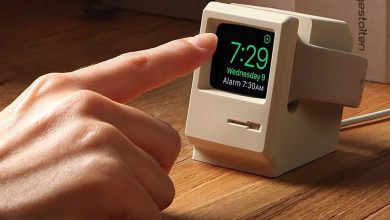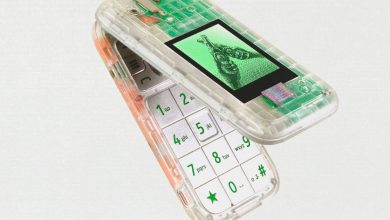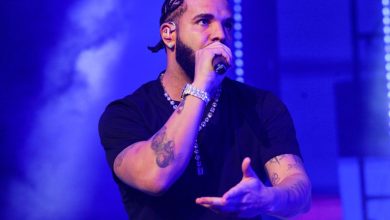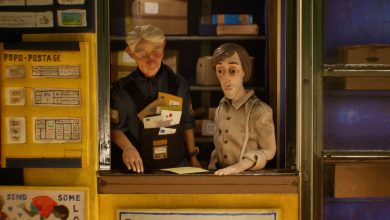Doctor Who’s new bi-generation twist feels like a slap to the face
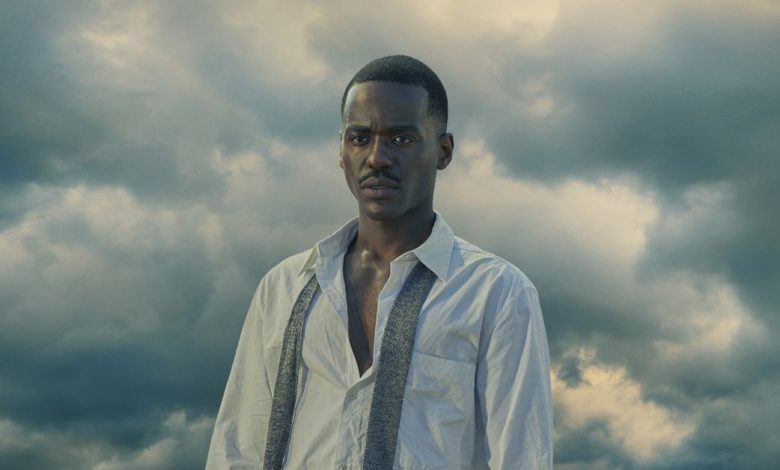
[ad_1]
Doctor Who executive producer Russell T. Davies warned everyone that the 60th anniversary special episodes were going to introduce some interesting new twists to the mythology of the series meant to set the stage for actor Ncuti Gatwa’s debut as the Time Lord. Some of those changes — especially those specific to the Doctor’s companions and nemeses — have been easy to understand as Davies updating Doctor Who lore to better reflect modern sensibilities. But when it came to the arrival of the newest Doctor — the first leading incarnation of the character to be played by a Black, queer man — Doctor Who’s 60th anniversary special absolutely fumbled the ball by forcing Gatwa to exist in another actor’s shadow.
This piece contains spoilers for all three episodes of Doctor Who’s 60th anniversary special.
Regeneration, the transformative process in which Time Lords like the Doctor become new, drastically different versions of themselves, has always been a fascinating part of Doctor Who’s mythology and the BBC’s convenient way of passing the mantle on from one actor to another. Though the Doctor usually recalls the events of their past lives, they’ve always been their own distinct people who go on to have adventures with new companions. The regular casting changes all around are how the series has been able to run for 60 years.
In the post-2005 Doctor Who revival under showrunners Davies, Steven Moffat, and Chris Chibnall, regenerations have been momentous events that gave viewers a taste of what’s to come while saying goodbye to the Doctor’s previous face. But ever since the Thirteenth Doctor (Jodie Whittaker) regenerated into a new form resembling the Tenth Doctor (David Tennant), it’s been clear that something unusual has been going on inside of the Doctor — something “The Giggle,” the third and final of the 60th anniversary episodes, explores in detail.
After finally setting things right with Donna Noble (Catherine Tate) in “The Star Beast” and then spinning off with her on a nightmarish journey to the edge of the universe in “Wild Blue Yonder,” the Fourteenth Doctor (Tennant) returns to Earth in “The Giggle” to do battle with an updated version of classic Doctor Who villain The Toymaker (Neil Patrick Harris). In his original form (portrayed by Batman alum Michael Gough), The Toymaker was introduced as a game-obsessed being from unknown origins whose knack for defying the laws of physics and inventing deadly “toys” made him a unique threat to the universe. In “The Giggle,” the character returns to the small screen for the first time since his initial appearance with a maniacal plan to destroy the world by hiding a secret rage-inducing signal that’s coded into every screen on the planet.
Ahead of “The Giggle” airing, Davies spoke candidly about wanting to use Harris’ turn as The Toymaker to address the context the character was originally introduced in and Doctor Who’s history of depicting him as a distinctly Asian-coded white man. Here, The Toymaker is presented as an off-putting German man who can’t quite keep a grip on his multiple affected accent. And “The Giggle” spotlights The Toymaker’s protean nature as a clever way of emphasizing just how disturbed the Fourteenth Doctor has been by his inability to fully understand what’s been going on with his own regeneration process.
With “The Giggle” being a special episode in which the stakes have to be high, The Toymaker’s plan for world conquest seems poised to work as he prepares to kill Fourteen by shooting him in front of Donna and fellow companion Mel Bush (Bonnie Langford). But rather than dying from being zapped through the chest with a massive laser, the Fourteenth Doctor is left relatively unharmed save for an odd feeling within himself, and when Fourteen asks Donna and Mel to pull both of his arms, his body begins to split in two.
According to the new Fifteenth Doctor (Ncuti Gatwa), bi-generation — a Time Lord simultaneously regenerating into two separate selves — was supposed to have been a Gallifreyan myth. But as Fourteen and Fifteen team up to defeat The Toymaker, “The Giggle” makes obvious that this era of multiple contemporaneous Doctors is here to stay, and while that’s sure to delight the legions of Doctor Who fans who’ve come to see Tennant as the quintessential Doctor, it’s impossible not to read the episode as having stolen a lot of Gatwa’s thunder.
When Gatwa was first announced as the actor who would be taking over the Doctor role following Whittaker’s three-series-long run, it felt like the BBC finally had the common sense to lean more into Doctor Who’s core ideas about imagination, exploration, and discovery across time and space. No matter how vehemently Doctor Who fans might want to deny it, the fact that the Doctor — a shapeshifting alien from a planet full of brilliant time travelers — was almost exclusively portrayed by white men until 2017 was small-minded, racist, and sexist in equal measure.
Despite their being late to the party, Whittaker’s Thirteen and Jo Martin’s Fugitive Doctor both demonstrated how Doctor Who could stay true to its narrative essence while also allowing the Doctor themselves to better reflect the real-world diversity of the fandom that loves the character. Gatwa’s run has seemed poised to do the same. But everything about the way “The Giggle” brings Fifteen into the picture — from the way he’s left standing in his underwear while Fourteen remains mostly clothed to the implication that the two Doctors will seemingly coexist — makes it seem as if Davies is trying to placate the contingent of fans who don’t want to accept a queer, Black actor playing the Doctor role by keeping Tennant in the mix.
Those fans vocalized their displeasure at the idea of a Black Doctor in the same way that people griped about the idea of a Black Spider-Man, a Black Captain America, or a Black James Bond. They’re the same people who’ve lost their minds at the sight of Black April O’Neil and can’t wrap their minds around the concept of Castlevania: Nocturne’s Black vampires. They’re also the people that love Mace Windu but hated it when Finn picked up a lightsaber and then promptly disappeared for much of the recent Star Wars movies. Point is: these fans are an unfortunate fixture in many genre fandoms, and while some aspects of “The Giggle” actually comment on how dangerous their specific brand of rage can be, the whole situation with “bi-generation” plays like Doctor Who catering to the fandom’s less-enlightened desires.
You can tell that Davies means for it to be poignant and touching in moments when Fifteen confronts Fourteen about his need to deal with his emotional baggage or when the companions express their excitement at meeting a new Doctor. But all of that goodwill is immediately squandered when you have characters (who know better from firsthand experience) asking whether the Doctor comes in a variety of colors.
The trappings and optics of “The Giggle” also add an unfortunate kind of magical negro quality to Fifteen’s heart-to-heart talks with Fourteen, which is a concept that seems like it might be lost on Doctor Who’s writers room. The two Doctors defeat The Toymaker together, but the episode’s real emotional climax comes as Fifteen explains himself as the product of emotional healing that Fourteen hasn’t yet done. The concept of a time traveler “doing rehab out of order” certainly sounds cool on the page. But within the episode itself, it frames Fifteen less as his own person living for himself and more as a source of emotional support for Fourteen, who ends up being inspired by Fifteen’s sage wisdom.
What’s most concerning, though, is the way “The Giggle” implies that the Doctors will now coexist, seemingly as Fourteen joins a bunch of the older companions like Donna, Mel, and Kate Lethbridge-Stewart (Jemma Redgrave) as part of a new spinoff project revolving around UNIT, Doctor Who’s answer to Marvel’s SHIELD / SWORD / SABER.
As distinct as each of the 60th anniversary special episodes have been, they each did a fantastic job of digging into the reality of how, after decades of journeying with their ordinary human allies, the Doctor has left more than a few of them behind and feels a profound kind of regret about it. More new stories centering Fourteen and the classic companions could create a way for Davies to dig deeper into that aspect of the Doctor’s psychology, and with Tennant’s tenure as Ten / Fourteen being so beloved by Doctor Who fans, it’s not hard to understand why the BBC might want to keep him around indefinitely.
But part of what made it possible for Tennant’s initial run as the Doctor to become a monster success was the time and space he was given to fully own and make the character his own, independent of his immediate predecessor. “The Giggle” doesn’t wholly preclude Gatwa’s ability to do the same, but simply by making this era one he might have to share with Tennant, Doctor Who has already put him at something of a disadvantage.
Of course, we won’t know until the upcoming Christmas special starts to air exactly how Doctor Who will address bi-generation’s larger ramifications and what sort of figure Fifteen will be on the show. But with the Fourteen still running around, and maybe getting ready to pull everyone’s focus back over to what’s going on in his new life on Earth, it feels like the Fifteenth Doctor might end up having to share his spotlight in a way that the character hasn’t been forced to previously. Let’s hope that doesn’t end up being the case.
The next Doctor Who Christmas special premieres on Christmas Day.
[ad_2]

